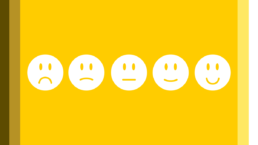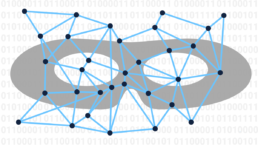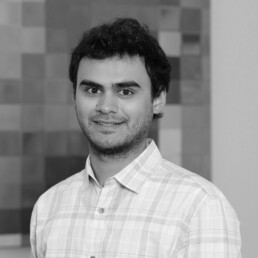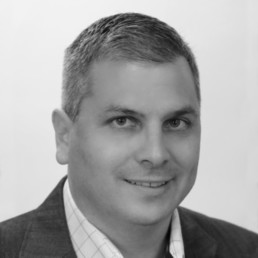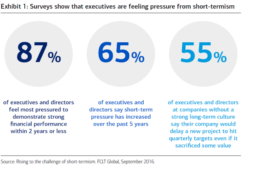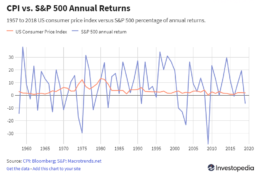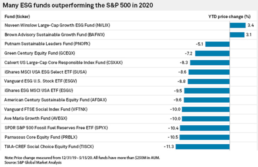A Commitment to Sacred Spaces: Celebrating National Public Lands Day
2020 is a year for the record books — and if climate change wasn’t top of mind for you last year, it’s hard to ignore this year. Our forests are burning, oceans are churning, and the effects of climate change are undeniable. There’s never been a more obvious time to commit to protecting and preserving the sacred spaces on our beautiful planet… we should all be on a quest to make sure the fires and hurricanes don’t win. Combating climate change is a foundational value for us at CoPeace.
Of the many ways we can each take part to be the change we want to see in the world, celebrating National Public Lands Day — which was last weekend — is at the top of our list. National Public Lands Day is the largest single-day volunteer effort to celebrate the connection between people and green space. It’s a day to get out and make a difference, however — and wherever — you can.
The History of National Public Lands Day
In 1994, three federal agencies and over 700 volunteers launched the first National Public Lands Day. It’s grown substantially over the last few decades. Each year, hundreds of thousands of volunteers participate in land clean-up events, tree planting events, seed collection, wild animal habitat improvements, and more. There’s a tradition on National Public Lands Day to encourage people to visit parks and green space all over the country — it’s a fee-free day at many federally managed parks and natural areas.
2020 Theme: “More Ways to Connect to Nature.”
This year things look a little different (or let’s face it… a lot different) in terms of getting out and about and involved in group activities. So if you didn’t get out in the fresh air to enjoy our beautiful lands, we understand. Due to social distancing guidelines and various local regulations that prevent large gatherings and volunteer events, National Public Lands Day hosted a series of virtual events this year. The virtual events allowed people to connect to iconic parks, national forests, marine estuaries, and various other land sites via the internet. Just like everyone’s doing this year — we’re finding new ways to support causes we care about here at CoPeace. We’re deeply committed to environmental stewardship and protecting our planet, and climate crisis solutions is at the top of our list of priorities. We want to do everything in our power to preserve our planet for future generations. That’s why we’ve invested in our holdings, Uncharted Power and AST. Uncharted Power is working on data infrastructure technology to provide universal access to clean, reliable, affordable power. AST is a new-generation waste management solution using plasma technology that is environmentally-friendly, safe, and financially viable.
We’re committed to positive change and protecting our planet, not just on National Public Lands Day, but also every day.
Lindsay Hope is a copywriter and marketing strategist with CoPeace. As a forward-thinking holding company, CoPeace is building a portfolio of carefully selected for-profit companies with measurable social and environmental impact. To learn more about impact investing, check out CoPeace’s Intro to Impact Investing.
Sharing Our Message on Positive Thinking Day

Last Sunday (Sept. 13) marked a day that deserves more attention – Positive Thinking Day. Though it is now behind us, we should still reflect on how we can attain a more positive mindset. A positive mindset is a powerful thing. With the right resources, team, and community, this evolves into something even more powerful – positive impact that can transform the world.
CoPeace is a company built on channeling the power of positive thinking into achieving positive impacts on our world. We continue to build an ecosystem of impactful companies providing innovative solutions to the climate crisis and ongoing social injustices. We are fortunate to have a network of like-minded, supportive investors and partners that believe in the CoPeace mission, and we are always looking to include more people in our community!
Positive energy breeds positive energy. As you reflect on this past Positive Thinking Day, how can you share your values within your community to help us all grow?
Jacob Miller is a financial analyst at CoPeace. As a forward-thinking holding company, CoPeace is building a portfolio of carefully selected for-profit companies with measurable social and environmental impact. To learn more about impact investing, check out CoPeace’s Intro to Impact Investing.
“Basic” Education

After changing from my sleep pants to my “work” sweatpants, and right before jumping on the first of what seems like an endless array of video meetings, I had some time to reflect on our recent household “emergency.” My daughter’s computer charger has stopped working.
I’ll spare you the boring details, but it took two very stressful days of watching the battery percentage helplessly drop before we were able to get a new charger. This was an emergency, since my daughter, like a large portion of the children around the world, is going to school remotely and a working computer is required for school education…a computer! Let that sink in.
School supplies used to be a notebook, a pencil, and a book (and an optional Transformers lunch box …if you were cool).
Through this pandemic we have seen a great push for social equality. It has been a problem for so many years and education sits right smack in its center of the issue. The access and quality of education are just a few of the issues that widen the divide in our society. Internet connectivity, a computer, and even electricity are luxuries a lot of us take for granted, and we only see their true value when they are suddenly gone. If you have kids, just trying shutting off your WiFi for five minutes and see your sweet child instantaneously morph into The Incredible Hulk!
As we try and plan for a better future on the other side, we cannot ignore the lessons we learn during the pandemic. We now know what the future will look like, we now know what the future will require from our children to be successful. So that is where we should invest our money.
We should invest in a future where each child has what they need to succeed. This way we not only become a more fair and just society, but we also become a more successful and prosperous society, where bright minds have the right platform to excel and ideas can flourish. This is not only the right thing to do socially, but the right thing to do financially!
At CoPeace we believe in investing in companies who create those platforms and the type of impact that changes generations. We do so, not by being psychic or pretending we know more than anyone else, but by taking note of the world around us and the direction it is heading toward.
Hanan Levin is a Senior Investment Advisor at CoPeace. As a forward-thinking holding company, CoPeace is building a portfolio of carefully selected for-profit companies with measurable social and environmental impact. To learn more about impact investing, check out CoPeace’s Intro to Impact Investing.
A Sports Fan’s Thoughts on Impact Investing

In honor of National Sports Day, August 29th, I’d like to share my full-circle story as both a lifelong sports fan and an impact investing advocate. First, a little background.
I was raised in Lincoln, Nebraska, where a unique religion is celebrated every Saturday during the fall. The service is held in Memorial Stadium, required dress code is red, and the faithful worship…football. My parents tithed, as season ticket holders. I even had the honor of tumbling on the altar, er, field.
I was a competitive athlete in high school, as was my husband. We raised two kids, who are currently both Division-I student-athletes. My previous career was in college sports.
Sports is in my blood.
With the global pandemic of COVID-19, the past six months have been catastrophic on so many levels. We have lost lives, jobs, homes, and dreams. Difficult times require us to reflect on what’s truly important, seek perspective, and lean on what provides solace.
But my happy place essentially vanished with the virus.
Without sports to feed my soul, I focused on my other passion – impact investing – and I quickly realized powerful synergies. They both bring people together. They connect people through the desire for a common goal and collective purpose. They further the dialogue on social justice and racial equality. They inherently build diverse communities who work together as a team. They are value-focused — what means the most to us.
Imagine if we directed the same amount of time, energy, and thought into our spending habits as we do into the playoffs, the championship game, or the MVP. Our purchasing and investing power are larger than any title or trophy. We have the ability to bring positive change into the world simply with our wallets. And everyone can join the team, impact investing is now accessible and inclusive.
As a closing thought, the power of sport in facilitating positive social and environmental change is undeniable. The recent boycotts of the WNBA and NBA players are just one example. We need to listen, learn, converse, and act together, utilizing the platforms we have available every day.
Support your team. Invest in your values. Make the world a better place.
Meg Masten is the Chief Relationship Officer at CoPeace. As a forward-thinking holding company, CoPeace is building a portfolio of carefully selected for-profit companies with measurable social and environmental impact. To learn more about impact investing, check out CoPeace’s Intro to Impact Investing.
What National Water Quality Month Means To Us

“Aappovaa Annam Shariram Annadam”
This Sanskrit verse implies that water (Aappovaa) is the basis for food, and the human body (shariram) is composed (survived) of food (annadam). Hence, it is utmost essential to save water.
August is National Water Quality Month. This reminds us to think of how valuable the water resources are like oceans, lakes, and rivers to preserve, which provide clean and safe water to us. Safe, clean, potable water should be a right for everyone, but it’s becoming a privilege nowadays. Many countries around the world are grappling with the issue of providing clean water.
In under-developed countries or developing countries, getting drinkable water to everyone is becoming more of a challenge to poor and lower-income families.
As a developing country, India is on the brink of a water crisis. Poor management of water resources and water pollution are the main reasons for this crisis. Many rivers flow throughout the country. So, they are the main sources for drinking water and household chores. But they are polluted regularly. The situation gets worse when people wash their clothes and bathe in river water.
On my last trip to India, I saw how lower-income groups of people have to struggle to get clean drinking water. People living in rural areas have to walk miles every day to get a few gallons of potable water for their families. Additionally, the majority of the population in India does not get access to clean tap water. During the monsoon months, most people who have access to clean tap water, will still boil the water before drinking.
Most of the middle-income and upper-income families use their own reverse-osmosis filters to treat tap water when it is available, but in most cities, it is supplied for just a few hours each day. Corporations supply drinking water in trucks to lower-income families who boil it to make it fit to drink.
This is not just India; access to clean water does not exist in many communities throughout the world. Unfortunately, having high quality, unpolluted water is continuously taken for granted, especially by developed countries. In the US, we use water for everything from drinking to recreation without thinking twice about it, but what most Americans don’t realize is, not all water is created equal, and having immediate access to clean water is a privilege, not a right.
How do we prevent harming the water quality?
It is important to only flush the three Ps (pee, poop and [toilet]paper). Flushing other items could contaminate the wastewater system, causing downstream water quality issues, or it could create major plumbing issues, including broken pipes.
Here are a few things we can do to prevent water pollution:
-
- Make sure to dispose of any paint, pesticides, cleaners, chemicals, and other items at your local hazardous waste site.
- Some landscaping pesticides and fertilizers are harmful to the water supply. When choosing your landscaping products, it is important to choose phosphorus-free products. It is also important not to overwater your lawn, since that can cause runoff of fertilizers and pesticides into the water supply.
- Clean any oil leaks or spills with either kitty litter or baking soda, then dispose of that in the trash.
- Dispose of pet waste as soon as possible.
- Keep your gutters and sidewalks clean, so debris does not get washed into the storm drain.
- Sweep paved areas around your house, rather than hosing them down.
You never know the worth of water until the well runs dry, so Conserve water, Conserve life.
Aarti Karnik is the Director of Web Development with CoPeace. As a forward-thinking holding company, CoPeace is building a portfolio of carefully selected for-profit companies with measurable social and environmental impact. To learn more about impact investing, check out CoPeace’s Intro to Impact Investing.
Why Does My Digital Privacy Matter?

Share
Why Does My Digital Privacy Matter?
By Jim Crawford
With a name like Jim, it’s easy to end up with dozens of nicknames over the years. One of the quirkiest nicknames I’ve earned is “Tinfoil Hat Jim.” The name implying my propensity for sharing (too passionately, sometimes) about the underrepresented problems of the world. Many may be addressed in future blogs. However, one in particular, is incredibly important to me – your digital data and privacy.
WAIT DON’T LEAVE!
Yes, data and privacy. Please stick with me, as I try to make a case for why this matters. In honor of my family and friends, I wanted to list some of the most common responses I hear when a discussion about digital privacy comes up:
1. “I don’t care if they see what I’m doing. I don’t have anything to hide.”
Ahh, this one. You essentially denounce yourself as so meaningless, who would even bother? It works in theory, but unfortunately your data is what makes everyone else’s data so valuable – and vice versa. In the business of selling info, large sets of user data are required to glean habits and trends of different demographics.
This information is only valuable in large sets to build patterns with machine learning and algorithms. The data gatherers are hoping you and 5 million other people won’t care enough to secure your data – that’s the most valuable result for them. In the words of Plato, “To be silent, is to consent.”
TL;DR: It’s precisely because enough people just don’t care, that everyone else’s data is so valuable and it becomes easier to discern your personal preferences and opinions.
2. “Oh well, they already have all my info anyway.”
It’s true that consumer data protection has largely been ignored and violated for decades now. And it’s true some of your old info is probably in the hands of parties that should not have it. While a lot of your past history may be out there for someone to use or sell, why would that be a reason to continue providing those parties with more current and personal data about you? Think about your oldest email addresses, credit cards, and passwords. The data most likely to be compromised is probably already irrelevant to you, expired, or unused. But it’s not a logical reason to continue leaving yourself vulnerable to privacy violations.
TL;DR: If your sink was leaky, would you neglect to fix it because some of the water already leaked out?
3. “Well, I’m broke anyway, so the joke is on them.”
While Aunt Margery probably got the whole family paranoid after watching a broadcast special about “the foreigners” stealing your credit card info, let’s not go make a Facebook post about it…yet. Your primary concern is not really that someone will steal your money. This is where some of the strongest data security regulations already exist, thankfully. The concern is that data collectors will be able to build a profile on you and influence your habits and belief systems.
TL;DR: The big players aren’t after your money, directly. They are after your habits, patterns, and beliefs.
In general, I think the greatest mistake we make as a population is assuming our surface data is all that’s being collected. In reality, governments and corporations are tracking thousands of data points on each one of us – financial, political, commercial, social. How long we hover on text and images, which devices we are connecting with, where we are connecting from, what themes develop from our search history.
Want to take the first step in protecting your personal data? See some of my simplest recommendations below.
1. Make Mozilla Firefox or Apple Safari your default web browser.
Website cookies and trackers normally follow you around the web, track your actions, and report the data back to an organization. Firefox and Safari are making the most progressive attempts to prevent this by having each tab represent its own internet session. This way trackers cannot exit their own tab to track your other web activity.
2. Change your default search engine to DuckDuckGo.
Yes, DuckDuckGo. It sounds funny, but it is the antithesis to Google. Many search engines are the biggest offenders of privacy. Google began tracking and storing user data under the guise of providing more relevant ads. This has quickly devolved into complex personality profiles built “anonymously” and sold to the highest bidders, who want specific demographics to receive their message. The DuckDuckGo search engine does not operate on this revenue stream and doesn’t collect personalized data to profile and store.
It’s important to recognize that the more someone knows about you, the easier it is to understand you, including your wants, needs, and beliefs. At its least sinister, this means targeted advertising and location tracking – getting you to direct your money toward them. However, utilized in more sinister ways, this data can be used for voter suppression, political manipulation, social unrest, and even global disruption.
Jim Crawford formerly worked with CoPeace in business communications. As a forward-thinking holding company, CoPeace is building a portfolio of carefully selected for-profit companies with measurable social and environmental impact. To learn more about impact investing, check out CoPeace’s Intro to Impact Investing.
Why This, Why Us, Why Now

Why This | And Now for Something Completely Different
Business as we know it has not been working. Inequality continues to grow. Many people do not have access to opportunities or tools to improve their current economic situation. As of 2016, the average net worth of a Black family was about 10 times less than the net worth of a White family, according to the Brookings Institution, with no ubiquitous pathways to improvement.
Impact investing has shown strong promise as a vehicle for change. The ability to directly invest in businesses doing good work, while providing a strong financial return, produces opportunities to generate real change. Most of the current opportunities are more accessible to people of wealth or only available through vehicles that negatively screen businesses doing less bad. It turns out, it is a good business decision to care about the long-term future of our world and the multiple bottom lines therein.
We need new models to harness the potential impact investing is showing, so more people can participate in the opportunity. The deep research on impact and ESG investing shows that long term horizons are beating companies that only focus on short-term returns, all other effects of their business be damned.
Why Us | We vs. Me
As business seeks more responsible standards, companies that create inclusive, socially impactful wealth for all people have the opportunity to grant additional access for change. Democratizing the models of impact investing generates newfound opportunities and pathways for more individuals.
Directly investing in things that are doing active good can help change the world, one company at a time. Uncharted Power is one of the companies that is creating real change – run by an incredible woman working to bring power and infrastructure to communities that do not have access to the grid.
When communities are improved in a collective, inclusive, clean way, the effects can trickle up to society at large.
Why Now | “Good Trouble!”
The Bubonic Plague led to The Renaissance – a more energized, youthful, creative, and inclusive world. The COVID-19 pandemic, the struggle for racial injustice, and ongoing climate crisis are collectively our current plague. And, an opportunity.
Now is the time to change the business landscape and make the future a better place. Business holds a unique and deep responsibility in this global dynamic. Equity and real returns, like communities of wealth have experienced for generations, can be made available to everyone through innovative investment vehicles, like holding companies.
These models need to be consistent philosophically with the ideals of our younger generations, who have unique access to information and are decidedly more inclusive in their thinking. My 22-year-old son said his entire generation has increased anxiety and, he continued, “It’s the Boomers’ fault.”
The time for action. I, for one, want to do what I can do make the future a better place for future generations.
“Get in good trouble, necessary trouble, and help redeem the soul of America.”
— John Lewis speaking atop the Edmund Pettus Bridge
Selma, Alabama – March 1, 2020
Craig Jonas is the CEO and founder of CoPeace. As a forward-thinking holding company, CoPeace is building a portfolio of carefully selected for-profit companies with measurable social and environmental impact. To learn more about impact investing, check out CoPeace’s Intro to Impact Investing.
I Vote Every Day
Last November, after collecting an ‘I Voted’ sticker on my way out of the voting booth, rather than paste it on my shirt, I chose to stick it on my credit card. Now, whenever I pull out my credit card, I’m unmistakably reminded that I vote with where and what I purchase.
That idea and effort – of striving to align my support for businesses and products that align with my values – is one that I’m continually learning to live. Working with CoPeace, a Certified B Corporation, gives me the added motivation to better understand what it means to Vote Every Day.
Regular readers may recall the February edition of this blog in which CoPeace financial analyst Jacob Miller shared a primer about impact investing and B Corps. Check it out as a reminder for why we, at CoPeace, are so excited to be part of the B Corp community. One of the tenets held by B Corp businesses and supporters alike is to approach each day as if “Every day is Election Day.” Find businesses that serve your needs and routines by taking the B Lab’s 1 Minute Quiz. It can be a worthwhile and rewarding experience to know that you’re using your dollars to back businesses that you want to ‘win’ in humanity’s collective justice and sustainability journey.
With the surge of recent widespread public acknowledgement that Black lives matter, it’s inspiring to come across numerous other tools that are helping consumers be more intentional with their spending. Some websites, like intentionalist.com and http://www.donegood.co/, offer filters for choices like community ownership, product category, or location. Other resources offer curated lists or apps created to help diners find Black-owned restaurants in their city.
There are resources out there to help align values with business and help make your vote count every day.
Stewards of Our Planet
July 11th is World Population Day. I know what you are thinking…everything has a day…National Siblings Day…National Ice Cream Day… but this is a day that really matters.
The world population has been increasing at around 100 million people a year – to where we now stand at approximately 7.8 billion people.
That is a lot of need for clean water, food, shelter; and our planet is being developed and pushed to unprecedented limits.
What can we do?
We must be mindful stewards. It will take a collective effort.
It is so important for us to take the necessary steps now to preserve the planet’s vital resources!
We are starting to see that renewable energy is our future and even the traditional oil and gas companies are now investing in clean energy. This is the first step in turning the corner.
This shared planet must be one of equality.
What measures are being put in place to ensure economic equality and social justice?
Finally, we are making demands for true equality and answering the call that Black Lives Matter!
The current pandemic has further accentuated issues within the global economy of the wealth divide. We have seen the most vulnerable be the most affected by the pandemic.
COVID-19 has revealed issues with our current infrastructure.
The past three months have been riddled with power outages and internet interruptions to complement an aging physical infrastructure of roads, pipes, and buildings. Cities such as Flint, Michigan are still without clean water.
Innovative solutions are being implemented, but more is needed.
At CoPeace, we are committed to being part of the solution. We are investing in companies that share this responsibility to the planet and its people that are creating a better world for the next two thousand years.
Your investment in CoPeace helps us to inspire and create positive change in all these areas.
Look around you, give a wave, smile at a distance, open up your heart for those you encounter – we are but one people – all 7.8 billion of us. It is our shared world – for today, tomorrow and all the tomorrows thereafter. Collectively we could make a difference and preserve the future.
Happy World Population Day!
Leigh Klein formerly worked as the Director of Sport Strategy at CoPeace. As a forward-thinking holding company, CoPeace is building a portfolio of carefully selected for-profit companies with measurable social and environmental impact. To learn more about impact investing, check out CoPeace’s Intro to Impact Investing.
Thoughts About Long-term Impact Investing

Why Invest Long Term?
- Public markets can disproportionately reward short-term earnings rather than long term growth.
- CEOs of publicly traded companies are under enormous pressure to deliver consistent quarterly earnings growth or suffer the consequences of declining share prices and or short-lived tenures in the C-Suite.
- Patience can lead to profits
- Great ideas need time to incubate, nourish, refine, and grow into comprehensive transformational solutions to current and future challenges.
- Trends take time to develop and sustain
- If you choose wisely with your head, your heart, and some solid math you can relax and enjoy upward rise and filter out the inevitable ups and downs along the way.
- Why endure the stress of daily market fluctuations when you can invest for the long haul?
- Investing in publicly traded companies can be a rollercoaster subject to the wild swings up and down as we have been experiencing over the last few months.
- Buying and holding public equities is a strategy with long term positive returns, but you have to be willing to endure market fluctuations. The long-term average annual return in the S&P 500 adjusted for inflation is about 7% (according to Investopedia). So, a diversified stock portfolio has traditionally been a solid investment choice over time.
-
- If you don’t need short-term access to a portion of your investable funds, you can buy and hold publicly traded stocks and block out periodic volatility
OR…
- Invest for the long term in private companies
- Traditionally, private company investing has been largely available only to high net worth individuals, institutions, venture capital and private equity firms.
- Such investments are highly illiquid and generally have finite holding periods of 4-7 years to realize a return upon exit (sale of the company, merger, IPO, etc.)
- Pre-IPO companies are often loaded up with debt and driven toward rapid growth at all costs to facilitate the mid-term exit
AND…
Consider Investing a portion of your portfolio in privately held companies with environmental and social Impact
Why Impact Investing?
- It’s is a smart investment decision. Even now, now impact drive (ESG) funds are outperforming other companies during the Covid-19 pandemic
Merrill Lynch’s Case for Sustainable Investing
- Inflows into sustainable strategies over the next few decades could be roughly equivalent to the size of the S&P 500 today.1
- Firms with good or improving environmental, social, or governance (ESG) characteristics have been shown to perform as well as—and may even outperform—their peers.2
- Companies that are ranked higher by ESG data providers have generally seen lower future earnings volatility.3
- Nearly two dozen emerging markets offer approximately $23 trillion in climate-related investment opportunities.4
- Companies with good or improving social characteristics have, on average, outperformed companies with negative characteristics.5
- While performance results have varied over time, companies with better scores on board diversity and management diversity saw consistently higher future return on equities than counterparts with lower scores.6
In Summary
- It’s good for society—investing in companies with positive environmental and social impact helps our planet by addressing and solving important problems.
- It’s good for your personal health—remove the anxiety of market volatility and take solace in the fact that your investments are in alignment with your personal values.
- It’s the right thing to do—make the world a better place for our kids and for future generations
- It’s good for your portfolio health too—build your net worth while you #growyourmoneyforgood
Ed Tepper is the Chief Operating Officer and Chief Finance Officer at CoPeace. As a forward-thinking holding company, CoPeace is building a portfolio of carefully selected for-profit companies with measurable social and environmental impact. To learn more about impact investing, check out CoPeace’s Intro to Impact Investing.


